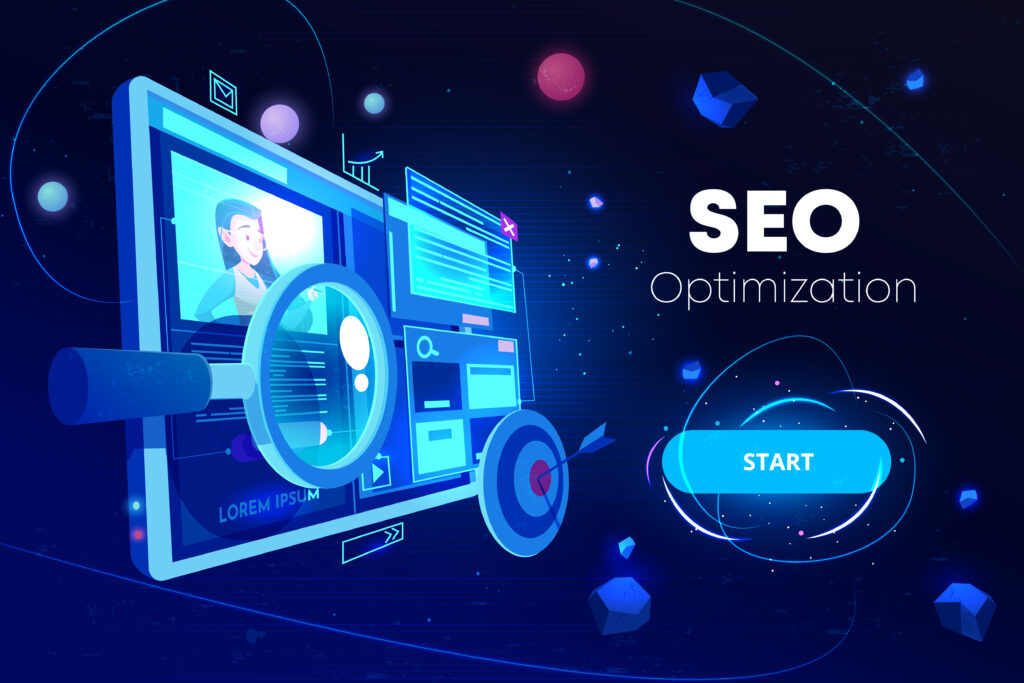Currently the world is running on online platforms, especially via search engines; in this regard, anyone with an intention to make an online presence has to understand what is Search Engine Optimization. But let me ask this: what exactly is SEO and why is this phenomenon so crucial? In this detailed overview, you will find out what SEO and its main components are, and why this process is crucial.
Understanding SEO
SEO is defined as the activity aimed at making a certain site or certain web content more searchable or easily findable through search engine results pages or SERPs. The main aim of SEO is to increase an auditor’s exposure over time in the organic search space by optimizing the auditor on relevant search queries.
Users that need information, products or services to that an internet site might offer, tend to click on the links located at the top of search engine results such as Google, Bing, or Yahoo. Other factors that are used in the process include employing various tricks, approaches and gadgets to make the website or page to rank better in these outcomes.

Why is SEO Important?
In fact, SEO is crucial, especially when the market is increasingly shifting towards the establishment of the digital economy. Here are some reasons why:
Increased Visibility and Traffic: It means websites with higher positions in SERPs receive more web clicks and visits. He or she who practiced his or her search engine optimization right will warrant that the content that he or she develops goes to the right people.
Credibility and Trust: Website visitors tend to have a certain level of trust in search engines, and when the website pops up on the first third of the first page, it means that the website is trusted and authoritative, which boosts the brand’s trust.
Cost-Effectiveness: While paid advertisement targets user centration through the use of the paid advertisement link, SEO is natural and hence can be used in the future without necessarily incurring other expenses.
User Experience: As we have shared good SEO practices help in improving website usability/user experience which in turn assists in rankings and also means users are getting value from your website.
Competitive Advantage: SEO can become an extremely effective weapon in highly competitive industries between our business and its competitors.
How Search Engines Work
Let’s begin by understanding precisely how search engines work prior to diving deep into the concept of SEO. Search engines use complex algorithms to:
Crawl: Internet search engines are programs that employ bots otherwise known as crawlers or spiders that look for new and changed content in the world Wide Web. These bots follow links and index web pages as well.
Index: After a page is indexed, the search engines parse and then store information about the page in its own search index. This index is simply a huge collection of World Wide Web contents.
Rank: Every time a user types in a search query, the search engines arrange the indexed website options according to suitability and quality, with the best at the top.
Core Components of SEO
SEO can be divided into three primary components:
- On-Page SEO
On-page SEO is the practice of site optimization that focuses on the actual web page content, HTML source code. Key aspects include:
Keyword Research: Specific enlightenment from this particular insight includes:
Content Quality: Content creation of knowledge-base, reliable, and interesting posts to respond to queries.
Meta Tags: Expanding meta title and description to increase CTR – click-through rate.
URL Structure: Creating clean and easy-to-understand website URLs that include one or more target keywords.
Internal Linking: Internal linking to other web pages to improve usability besides adding value to those pages within the website.
- Off-Page SEO
Off-line SEO relates to elements that happen outside your website but affect its positioning on search engine results. These include:
Backlinks: All the above link building techniques are very effective but the following is one of the most critical link building strategies; Linking your website from other authoritative and relevant websites.
Social Signals: Having page followers and regularly interacting with them through web based marketing tools likely to have an impact on ranking.
Brand Mentions: Promoting your brand, by having people talk about it, and its image, on the web.
- Technical SEO
Technical SEO concerns the changes made behind the scenes of your website. Key areas include:
Site Speed: Possible problems such as the website loading very slowly because of the large size of the images.
Mobile-Friendliness: Ensuring that the developed web site can be accessed in a proper format and function from a mobile device.
Secure Connections: Applying HTTPS for users’ data security and increasing the level of trust.
Structured Data: Adding schema to improve the way they interpret the content of your website.
XML Sitemaps: Writing sitemaps so that to possibly submit them to help search engines to crawl your site indexes more effectively.

The Role of Keywords in Search Engine Optimization
This is a fact for many that keywords form the core structure of SEO. They are the keywords, or the words that a user enters into the search engine to pull up information. A successful SEO strategy involves:
Keyword Research Tools: By the use of Google Keyword Planner, SEMrush or Ahrefs to find the right high value keyword.
Long-Tail Keywords: These are longer and more specific phrases that give the SEO less competition and more conversion rates.
Keyword Placement: Keyword targeting within titles, headings, text, and meta tags without keyword jamming.
Content is King
Content is an important factor in SEO cannot be overemphasized. High-quality content:
Answers user questions.
Interacts with the audience, forcing them to stay on your site for longer.
Acquiring backlinks from other sites; increases site’s credibility.
Some of the usage types that fit well into content strategies are blogging, video, infographic among others that have capacity to create value as well as understanding the user intent.
The Evolution of Search Engine Optimization
SEO is dynamic in nature, and it is accurate as, with the enhancement in technology and change in algorithms by the search engines. Key trends shaping SEO today include:
Voice Search Optimization: Forget about the traditional SEO with the appearance of voice assistants like Alexa and Siri, voice queries are inevitable.
AI and Machine Learning: Artificial intelligence is quickly finding its way into search engines to analyze the user’s search queries and provide relevant search results.
Mobile-First Indexing: The consequence of this is that Google indexes and ranks mostly the mobile version of the site’s content.
Core Web Vitals: Performance indicators that describe the quality of users’ experiences, such as the time page takes to open, its responsiveness, and the solidity of images it contains.
Common Search Engine Optimization Myths
Even though SEO has become familiar, it is still shrouded in myths and misconceptions. Some common ones include:
Myth: SEO is a one-time effort.
Truth: SEO is the process of improving links and on-site optimization and is a ceaseless process that involves frequent updates.
Myth: Keyword loading results to ranking assurance.
Truth: Keyword stuffing will work against you, and will lower your standing on the search engines.
Myth: Smack experimenting that paid ads leads to good organic rankings.
Truth: Even paid advertising helps to obtain traffic, it cannot impact organic ranking in any way.
Measuring Search Engine Optimization Success
To gauge the effectiveness of your SEO efforts, track the following metrics:
Organic Traffic: The amount of people that have visited your site using the search engines.
Keyword Rankings: Where your targeted keyword ranks in SERPs.
Backlinks: The. many and the quality of the sites linking to your content.
Bounce Rate: The number and percent of people who visit your site and then never return after exiting one page of your site.
Conversion Rate: The proportion of tourists achieving the aimed goal the majority of which are making a purchase or subscribing to a newsletter.
Final Thoughts
Search Engine Optimization is a tool that is very useful for all people who want to succeed in the world of the Internet. There is a definite price to pay as far as time, effort, and planning but the benefits are well worth the trouble in terms of visibility, credibility and traffic.
SEO should not remain an exclusive preserve of website developers and marketing technocrats, this guide will assist content creators and small businesses, and marketing executives to find their customer base. Learning SEO can be a difficult experience, but the benefits one reaps in the long run make the effort worth it.
Are you willing to increase your online visibility, and attract more visitors to your website? Talk to us today about our professional SEO services. Your first advantage of using our services is that we give you a free web performance audit and analysis of your competitors, with tips on how to get you to achieve your business objectives faster.





Pingback: Top 6 SEO Tips for 2024 – Boost Your Rankings Today